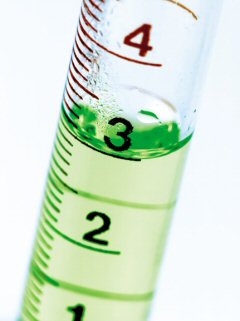 A new study from the University of California - Davis shows that triclocarban, a common antibacterial chemical used in many personal care products, can alter hormonal activity in a way not previously recognized. Triclocarban is widely used in bar soaps, body washes, cleansing lotions, wipes and detergents.
A new study from the University of California - Davis shows that triclocarban, a common antibacterial chemical used in many personal care products, can alter hormonal activity in a way not previously recognized. Triclocarban is widely used in bar soaps, body washes, cleansing lotions, wipes and detergents. The new research adds weight to an increasing body of evidence that some synthetic chemicals in household products can cause reproductive health problems by interfering with normal hormonal action. Such chemicals are known as endocrine disruptors and have been linked in animal studies to a variety of problems, including cancer, reproductive failure and developmental anomalies.
The study found two key effects: In human cells, triclocarban increased gene expression that is normally regulated by testosterone. And when male rats were fed triclocarban, testosterone-dependent organs such as the prostate gland grew abnormally large.
The researchers said their discovery that triclocarban increased hormone effects was new. All previous studies of endocrine disruptors had found that they generally act by blocking or decreasing hormonal effects.
"This finding may eventually lead to an explanation for some rises in some previously described reproductive problems that have been difficult to understand," said Bill Lasley, a UC Davis expert on reproductive toxicology. He added that more analyses of antibacterial compounds and endocrine effects are planned.
Related:
Phthalates - Expanding Our Waistlines And Shrinking Our Dicks?
Association Between Common Chemical And Genital Development
Malformations Of Penis, Testicular Problems Linked To Pesticides, Plasticizers
Hormone Drug Linked To Male Genital Disorder
Source: University of California - Davis

